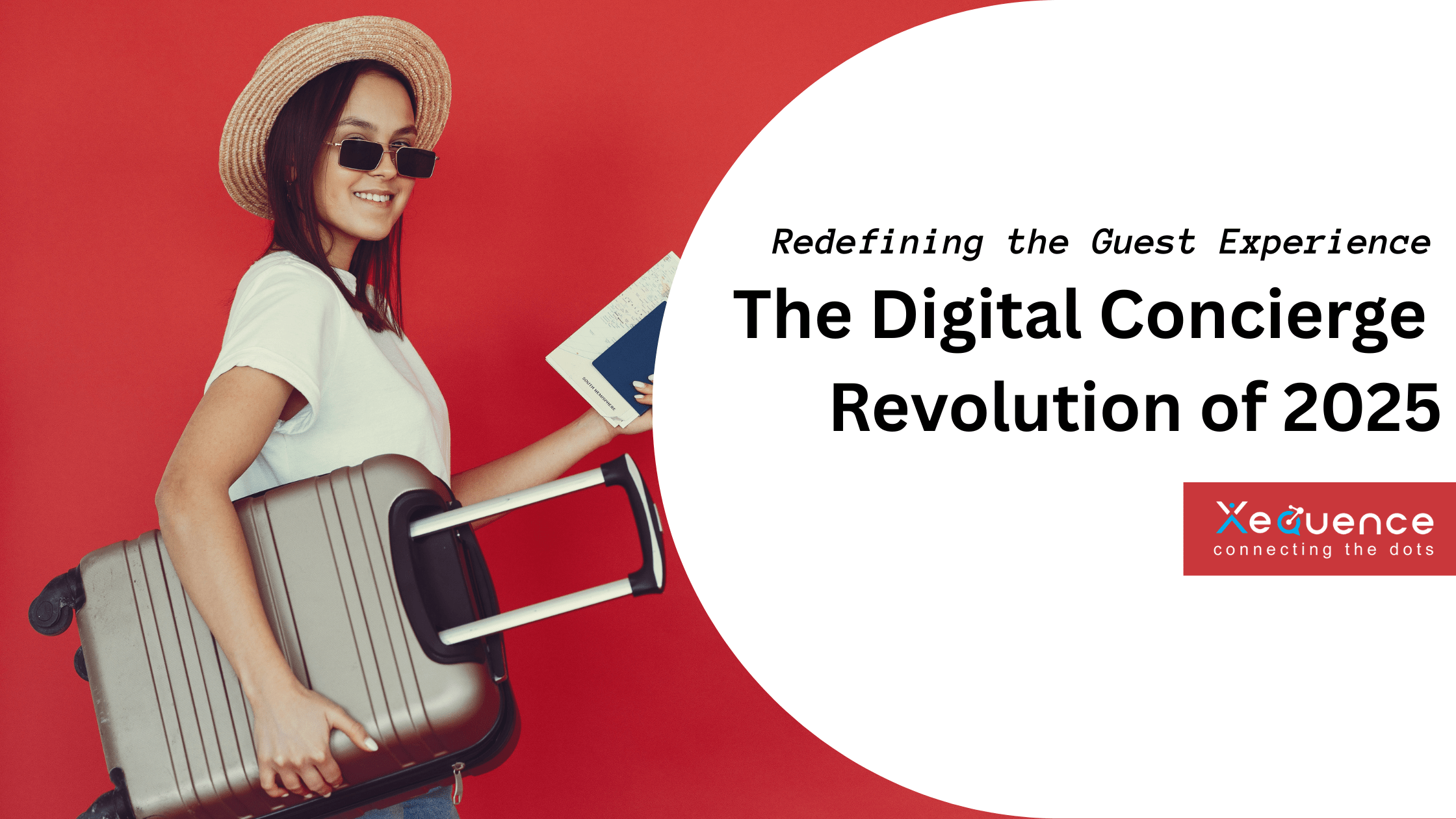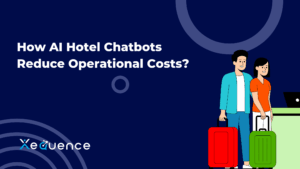- Home
- Artificial Intelligence
- Redefining the Guest Experience: The Digital Concierge Revolution of 2025
Redefining the Guest Experience: The Digital Concierge Revolution of 2025
- October 31, 2025
- Suraj Kumar
- Artificial Intelligence, Chatbot, Guest Experience

Redefining Guest Experience with Smart Digital Concierge Solutions
The hospitality market is at the peak of a digital revolution, and the one that has unexpectedly become the centre of that transformation is the simple chatbot. They are not half the cumbersome, aggravating automated systems that were used in the past; the current AI-powered hotel chatbot have progressed into complex digital concierges that can deliver tailored and immediate services twenty four hours a day. These smart hotel solutions are no longer merely helping the hotel run its services in 2025; they are essentially transforming how guests view their stay at a hotel.
The Intelligent Guest Communication Rise
Contemporary hotel chatbots are multiple times better than their predecessors. Studies indicate that 7 out of 10 visitors consider chatbot useful, especially when they want to receive information about simple tasks, such as exchange Wi-Fi passwords, receive cheques-in details, and answer questions related to a particular establishment. Compared to the inflexible, text-driven language portals of the past, the current generation of AI bot is beginning to rely on natural language processing and machine learning to read between the lines, feelings, and purposes.
These assistants have become digital concierges offering real-time responses to hotel-related queries at the preferred tone and with brand voice. Multilingual support, 24/7 availability, chatbot have become the front desk to many travellers, determining their whole experience of staying at a particular location.
Automating Operations
The advantages of hotel chatbot do not stop at the level of guest satisfaction. Customers with proprietors of sophisticated applications are achieving impressive efficiency improvements. An example is the Choice Hotels which were able to save close to 2 million in support costs in only eight months as it automatically passed 97.4 percent of their calls and decreased live agent calls that should have been escalated to 7.6 to 2.6 percent capacity.
This change in operations enables human employees to work on more value activities like one that needs personal touch which includes answering complicated guest requests, relationship building and handling one-off situations. This has led to a more efficient human resource allocation and job satisfaction of the hotel employees who are now able to focus on dealing with meaningful matters of the guests as opposed to repetitive questions.
Personalization at Scale
The capability to provide hyper-personalized experiences in bulk is, perhaps, the most impressive development of chatbot technology as per hotel industry trends 2025. New technologies examine guest information, preferences, and trends in behavior and generate individual advice and services. Chabot’s can now perform complex upselling and cross-selling operations whether it is proposing room upgrades, marketing spa treatment, or making personalized dining suggestions.
The technology has adapted itself to serve as an Omni channel contact – it is well integrated in web, mobile applications, WhatsApp, Facebook Messenger, SMS, among others. This makes sure that the guests are able to communicate in their desired medium and preserve context and continuity as they progress with the journey.
Direct Bookings and Revenue Generation
In addition to business efficiency, the hotel chatbot has turned out as market money makers. These software platforms are proactive in encouraging direct bookings, which include special offers and room upgrades when making the bookings. During the time of a guest stay, chatbot will be able to advertise property amenities, such as restaurants, spas, and experiences, which will directly result in more revenues with ancillary services.
This mobile-first messaging strategy has been exceptionally successful and WhatsApp-based services have been found to be 90 percent (and even higher in some cases) in terms of open rates and as quick as a near-1 replying time. Proactive upsell messages, like room upgrade promotions delivered to guests once they are staying on-property are generally highly converted.
Dismantling Language Barriers
Among the most notable effects of contemporary hotel chatbot, the capability to provide multilingual support without the need to staff more is also worth mentioning. This is especially useful in a hotel that receives visitors of different backgrounds internationally. Advertising chatbot will remove possible frustrations and will provide a more inclusive experience to every guest since they will provide them with instant communication in various languages.
The technology guarantees that the language barriers will not compromise the quality of the service, and the properties will be able to provide high-level and consistent services to the guests independently of their demographics and language preferences.
The Future of Hotel Technology Integration
AI-powered guest servicesget more advanced as we move through 2026, and they are being combined with Internet of Things (IoT) devices, smart room features, and property management systems. This integration provides a smooth experience wherein customers are able to manage room furniture, call service and receive information by speaking naturally with their digital concierge.
The shift to contactless service delivery, which is accelerated by evolving guest preferences and stemming operational efficiency requirements, puts AI concierge services at the Centre of infrastructure of contemporary hotels. These systems are making guest journeys truly automated with self-cheques-in assistance all the way to keyless entry coordination.
Conclusion
Chatbot in 2025 Hotels will be more than a technological novelty; they will be strategic assets that are changing the face of the hospitality industry entirely. These digital concierges deliver new levels of innovation to the experience that no travellers receive in their accommodation, combining operational effectiveness with personalized guest service.
The numbers are eloquent: since hotels across the world to address up to 70 percent of customer inquiries, the technology has become part of the experimentation period. The issue to hoteliers is no more about whether to adopt the chatbot technology or not, the only question is how soon they can roll out these technologies before they find themselves out in a highly digitized market. With guest demands steadily changing, properties adopting intelligent chatbot capabilities will be able to better meet instant, in-the-moment and customized experiences that prospective patrons seek when they demand to experience exceptional hospitality in the digital era.
Recent Posts
Newsletter
Get regular updates on data science, artificial intelligence, machine
You may also like

AI Travel Assistants: The New Personal Travel Planners

5 Things an AI Travel Assistant Can Do in Seconds

How AI Hotel Chatbots Reduce Operational Costs?




